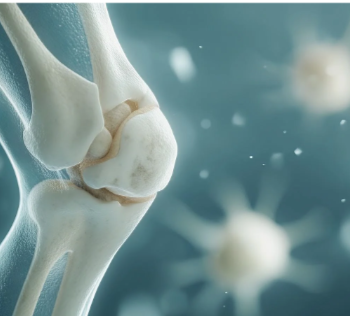An invitation society starts from the principle that users of disability services should have the same access to service, opportunity, and community life as everyone else. Disability support services have expanded all throughout Australia to not only include the delivery of basic needs but also to empower people to live with independence, dignity, and purpose. From assistance with daily living, to complex healthcare and social inclusion programs, the induction of person centered support practices developed a focus on the needs of the person being supported to flourish.
This article will consider the different dimensions of disability services, why they are important and how each provides better outcomes for the person being supported, their families, and their community.
Why Disability Support Services Are Important
Disability support services are not limited to meeting daily needs. They also build confidence, create social connections, and develop the foundation for long-term wellbeing. Disability support services are critical because they:
- Promote independence: Help people manage their life with the right level of assistance.
- Encourage community inclusion: Assist the person being supported to create active engagement within their community rather than social isolation.
- Support families and carers: Helps decrease the burden on families, enabling families to balance childcare, family life, and caregiving responsibilities.
- Promote health and safety: Having needs addressed through professional, skilled support workers who can address complex needs.
Critical Areas of Disability Support
1. Assistance for Daily Living
Daily living support provides assistance with core activities such as personal care, meal preparation, and house management. These supports ensure participants are able to comfortably live in their own home, while still being able to choose and manage the rest of their life.
The benefits of support include:
- Increased independence and dignity.
- Reduced burnout in caregivers.
- Improved mental wellness through routine and structure.
2. Social and Community Participation
Social relationships are essential to wellbeing, and programs that are structured to facilitate social participation encourage people to participate in community life. Whether that be in group settings, community events, or learning a new hobby or skill, participants can build relationships and build confidence.
Example supports could be:
- Supporting transport to social events.
- Supporting access to clubs (sports or recreation) to join.
- To support participation in volunteering or part-time work.
This is where services like community access Brisbane are able to make a considerable difference, allowing participants to engage in local opportunities while feeling informed and happy.
3. Supported Independent Living (SIL)
Supported Independent Living provides structured support for those who live independently (or may share a house). Typically this program supports a person to develop life skills in budgeting, cooking, and household maintenance.
Benefits of SIL offered point-by-point:
- 24/7 individualised support.
- A greater opportunity to develop independence in a safe environment.
- Access to skilled workers who understand the specific requirements of disability.
- An opportunity to build friendships with house mates and peers.
4. Short-Term Accommodation (STA) and Respite
Respite care provides families and carers with a break while the participants have quality support. STA provides opportunities for participants to experience alternative environments, develop skills, and interact with different people.
Why this is of value:
- Keeps carer fatigue and burnout at bay.
- A new opportunity for socialisation and experience for participants.
- Emergency support when your regular care team is unable to support you.
5. Health and Clinical Supports
For participants with additional needs, health and clinical support can be essential. Services like medication management, wound management and monitoring health all require professionals trained to establish the specific needs of each individual.
One example is community nursing Brisbane which provides a health care professional in the comfort of a participants (sic) own home. This service bridges the gap between clinical care and daily life for health and safety, and gives peace of mind.
6. Support for Transportation
If accessibility is to begin anywhere, it is often through safely provided transportation. Many individuals with disabilities often experience barriers in travelling or using public modes of transportation. With appropriately designed and tailored transportation arrangements, the participant can go safely to appointments, community events or social engagements without stress.
The point-wise value of transportation supports includes the below benefits:
- Supports timely attendance at medical appointments.
- Promotes active participation in community life.
- Provides independence through planned assistance with travel.
- Provides safety and reassurance for families and carers.
The Importance of Competent Support Workers
There are no viable services, without qualified support workers who play an essential role by using their training and expertise, compassion, and popularity. Responsibilities often include:
- Providing all personal/individual care with dignity and respect.
- Providing support for emotional wellbeing through companionship.
- Managing health needs, and ensuring early identification of unwell trends.
- Supporting participants coping with emotional distress or experience.
- Advocating for participants’ preferences and support for their choices.
Why they are important:
- They are the important backbone of care.
- They support trust which enhances security and stability.
- They provide a bridge for individuals, families, and healthcare systems.
Difficulties and Opportunities Encountered when Supporting Individuals
Disability support systems are changing and evolving, however there are still many difficulties:
Current difficulties:
- Professional shortages of a workforce understanding how to work with particular/differentiated disabilities.
- Staff providing services are caught between compliance to provide individualised support.
- The gaps in available supported transport and/or housing.
Areas for advancement:
- Utilising technology, including assistive devices and digital solutions.
- Creation of community partnerships to develop inclusive programs.
- Promoting higher levels of awareness and understanding of disability in the community.
The Significance of Person-Centred Care
At the centre of disability support is a focus on responding to individual goals and aspirations. Person-centred care means:
- The participant always has choice and control.
- Goals are personalised and growth-oriented.
- Families are included in the planning and have the opportunity for feedback.
- Flexibility is inherent when needs change.
This means the participant can not only receive support but can also flourish and live a meaningful life.
How to Select the Right Disability Support Provider
When selecting a provider, families and participants should consider:
- Accreditation and compliance with industry standards.
- Staff experience, training, and compassion.
- Services that will meet individual needs.
- Clear communication regarding costs and what to expect.
- Community connections to broaden opportunities.
Conclusion
Disability support services are more than a means to assist with some daily tasks; they are a route to independence, social inclusion, and improved health. Whether it is help with personal care, opportunities for participation in the community, or clinical support from professionals, these services allow every person to live their life in a meaningful way.
Society is constantly changing, and we must think about how it relates to our commitment to inclusion and accessibility. By supporting providers, advocating for our workforce, and listening to the voice of the participant community, we will build communities that uplift instead of restrict. Support for disability is about more than care. It’s about creating opportunities, removing barriers, and enabling everyone to succeed.





